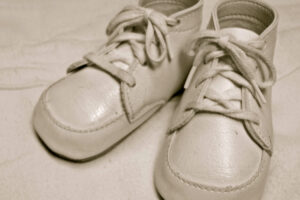An asthma attack that is severe can cause chest tightness, coughing, difficulty breathing, and wheezing. Moderate asthma attacks can be controlled with medication for bronchial problems or an inhaler. To prevent severe symptoms, or warning signs that indicate a bronchial attack, you should seek immediate medical attention.
Hay fever is when the muscles that line the airways contract and cause narrowing. This can cause breathing problems, such as tightness in the chest, tightening of the airways, and other symptoms. There are many information sources about Asthalin Tablets, including mg and Iverheal 12 and seo company houston.
Some triggers, such as allergens or irritating substances found in the air or smoke, could cause an allergic reaction.
You can also distinguish between an asthma attack and an asthma exacerbation.
These are signs of an allergic reaction.
Depending on the severity of an attack, symptoms and signs associated with asthma attacks can vary. While a mild attack of bronchial asthma may last for a few minutes, an acute attack of allergy can last several hours to days.
These could be signs that you are at risk of getting allergic reactions.
- The need for an asthma treatment, particularly albuterol
- A rise in cough
- It is common to feel breathless and helpless when you wake up from a sleep.
- Exercise tolerance is reduced
These are some signs that someone could be suffering from a bronchial attack.
- Wheezing
- The Snare is the chest
- Tightness in the chest or feeling like someone is sitting on your chest
- Rapid breathing
- It is difficult to breathe properly
- Coughing
- issue talking
An extreme allergic attack could indicate:
- Rapid breathing is characterized by rapid exhalation, which causes the skin to “suckin” around the chest and between the ribcage when you exhale.
- Variations in your skin’s pores and the color of your eyes’ lips, fingers and nails can cause variations in your skin. If you have darker skin tones, your skin may appear gray or white. If you have light skin, it can appear bluish-crimson.
- The rapid movement of nostrils
- Rapid, intense in-and out moves of the belly and the ribs
- The chest expands in size, but isn’t able to expand when you breathe out.
- Infants allergic to infants don’t have to react to their parents or caregivers.
Asthma attacks can cause tightness in the chest, wheezing, difficulty breathing, and coughing. Minor allergies can be managed with the bronchial asthma medication, which includes an inhaler. Anyone with severe symptoms such as bronchial and bronchial asthma will need immediate medical attention.
Hay fever attacks occur when the muscles that control the airways become weaker and the airways narrow. This can lead to breathing problems, tightness in the chest, wheezing, and other breathing issues. To get rid asthma, use the Asthalin inhaler and the Duolin inhaler.
Bronchitis can be caused by irritations, allergies, and allergens in the air, smoke, or other triggers.
You can talk about an asthma attack due to bronchial asthma as an exacerbation or bronchial attack.
This article will help you identify symptoms of an allergic reaction and what to do if it occurs. It also explains when you should seek medical assistance.
Signs that indicate you may have asthma
Depending on the severity of an asthma attack, the symptoms that are indicative of it can vary. A mild asthma attack may last only a few minutes. However, a severe attack can last for days or hours.
These indicators could indicate an asthma attack imminently:
- Albuterol and allergy relief medications are more important than ever.
- A rise in cough
- Feeling tired and uninspired, especially if it prompts you to get up
- Exercise tolerance is reduced
- An allergic attack is a sign that you are experiencing an allergic reaction.
- Wheezing
- The chest emits an audible rumbling sound
- Feeling tight around the chest or as if you are on someone else’s chest
- quickening respiratory
- It is hard to breathe fully.
- Coughing
- problem talking
These could be signs of severe allergic reactions:
- Rapid breathing can lead to rapid breathing. This can cause the body to “suckin” between the chest (or between the chest and the rib cage) when exhaling.
- Skin colors vary from one another, such as around the eyes, fingertips, lips, and lips. They can appear gray or white on dark skin, or blueish, reddish, or reddish skin with small pores.
- The rapid movement of nostrils
- The rapid, deep out-and in motion of the ribs or the belly
- A slowing of the chest, which is now deflated when you breathe out.
- For babies with allergies
Summary
An attack of severe asthma is when the muscles surrounding the airways relax and make breathing difficult. You may notice symptoms such as wheezing and chest tightness, as well as coughing or wheezing.
A mild asthma attack can usually be controlled by using a medication and an inhaler for only a few moments.
A severe attack of asthma must be treated immediately by a physician.







